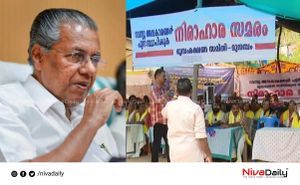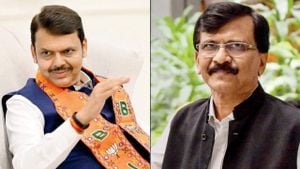With the dust settling on the Karnataka by-elections held on November 13, 2024, the results are unmistakably clear: the Congress party has decisively triumphed, securing all three contested seats—Channapatna, Shiggaon, and Sandur. This outcome marks not just another electoral success for Congress but also presents significant setbacks for the BJP and the Janata Dal (Secular), particularly for their notable candidates, including the sons of former Chief Ministers.
The byelections were necessitated by the elevation of their respective representatives to the Lok Sabha earlier this year. Candidates from across party lines faced off, with each seat showcasing tight contests and shifting leads throughout the counts.
One of the highlighted victories came from CP Yogeshwara of Congress, who managed to dethrone Nikhil Kumaraswamy, son of Union Minister H.D. Kumaraswamy, at Channapatna. Yogeshwara’s victory came by a margin of over 25,000 votes, reaffirming the strength of the Congress presence in this key constituency which had previously swung under JD(S) control.
Yasir Ahmed Khan Pathan, another Congress candidate, also made waves by defeating Bharat Bommai, the son of former Chief Minister Basavaraj Bommai, at Shiggaon—an impressive feat accomplished with over 13,000 votes separating the two candidates. Khan’s win here stands as yet another emblematic defeat for the BJP, which struggled to maintain its foothold from the past elections.
Meanwhile, E Annapurna, the Congress candidate for Sandur, also celebrated victory, achieving her seat with nearly 9,650 votes more than her closest rival, Bangaru Hanumanthu of the BJP. This win is significant, especially as it corresponds to the Congress’ broader strategy of consolidations across the state, signaling public endorsement of their governance and initiatives.
The by-poll results have garnered significant attention due to the broader implications they present for upcoming elections. Karnataka Deputy Chief Minister DK Shivakumar touted these victories as indicative of the public's growing support for Congress's governance over the past year and suggested they were laying the groundwork for the 2028 elections.
"This win is nothing but the public expressing their happiness about Congress's governance. The BJP should now at least stop baseless allegations against us. The people are not going to trust them anymore," he remarked, framing the results as validation for their policies and approach.
Voter turnout for the elections displayed considerable engagement, particularly at Channapatna which recorded around 88.81%. Shiggaon followed with 80.72%, and Sandur rounded out with 76.24% of registered voters making their way to the polls. Such notable participation is often viewed as a barometer of public sentiment, particularly relating to the efficacy of campaign strategies and the perceived significance of the elections.
The tactical maneuvers preceding the elections revealed intense rivalry, as all major parties strategized to reclaim or defend territories perceived as pivotal for both political presence and regional influence. Nikhil Kumaraswamy’s repeated defeats, including this latest attempt to hold off Congress’s resurgence, signify challenges for the JD(S)—a party already grappling with its relevance and electoral viability.
Post-election analysis indicates this significant shift poses questions about the BJP's strategy as it faces dissent not only from the opposition but perhaps equally from within its own ranks. Speculations arise around where this leaves the party as we move closer to potential future elections, with discussions likely focusing on addressing grassroots issues.
Given results like these, the Congress party's ability to capitalize on perceived discontent with the BJP and JD(S) will establish the narrative for Karnataka politics moving forward. The resounding victories indicate voter belief not only in Congress but potentially call for introspection among opposing parties, as both strategize for their paths leading to the next Lok Sabha elections.
Overall, the Karnataka by-elections of 2024 deliver significant insights not just to local dynamics but also to the broader political climate across India. With so much riding on these results, all eyes will remain on how these parties adjust their strategies and policy platforms to win over voters uneasily positioned between shifting allegiances.



